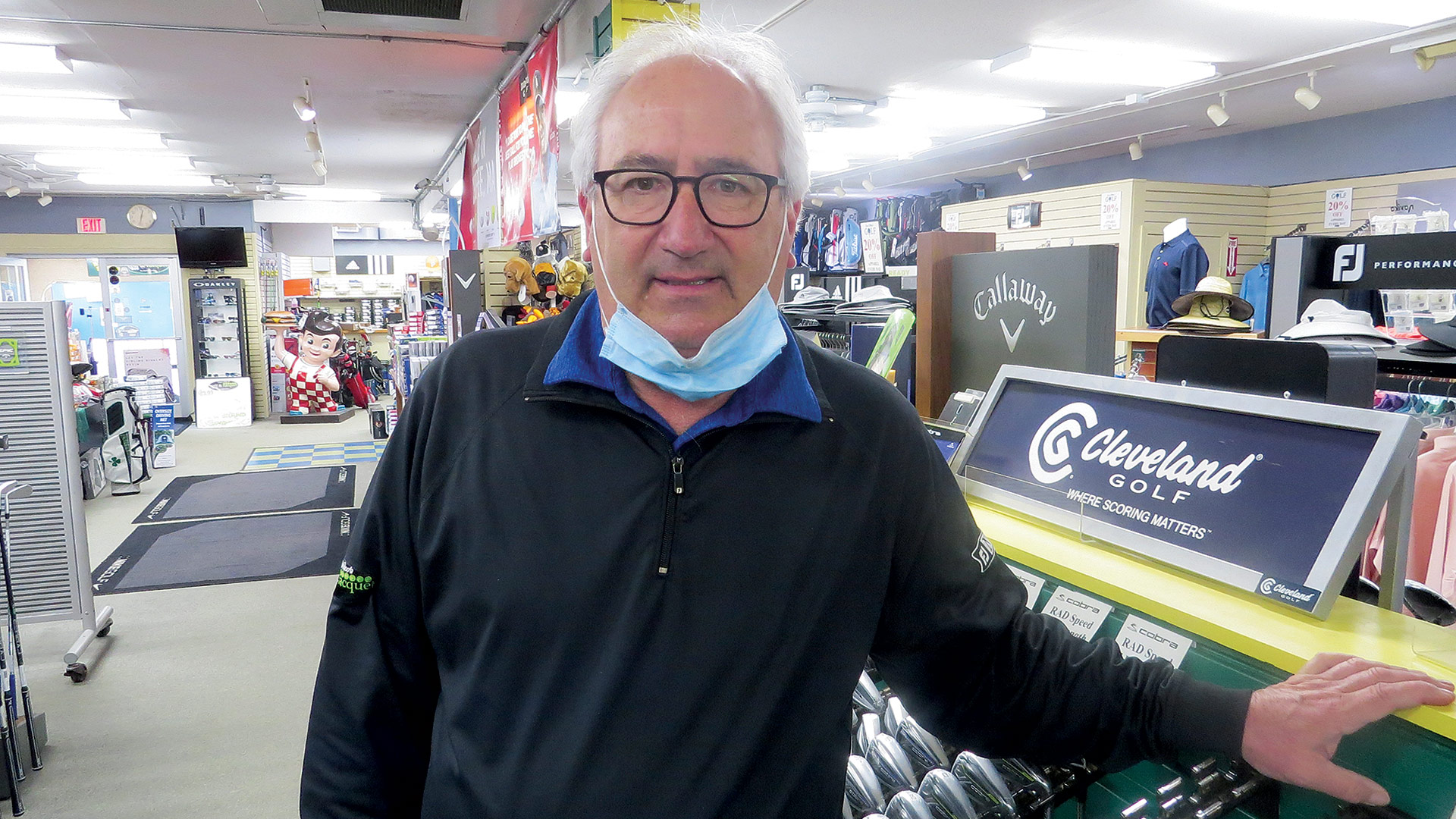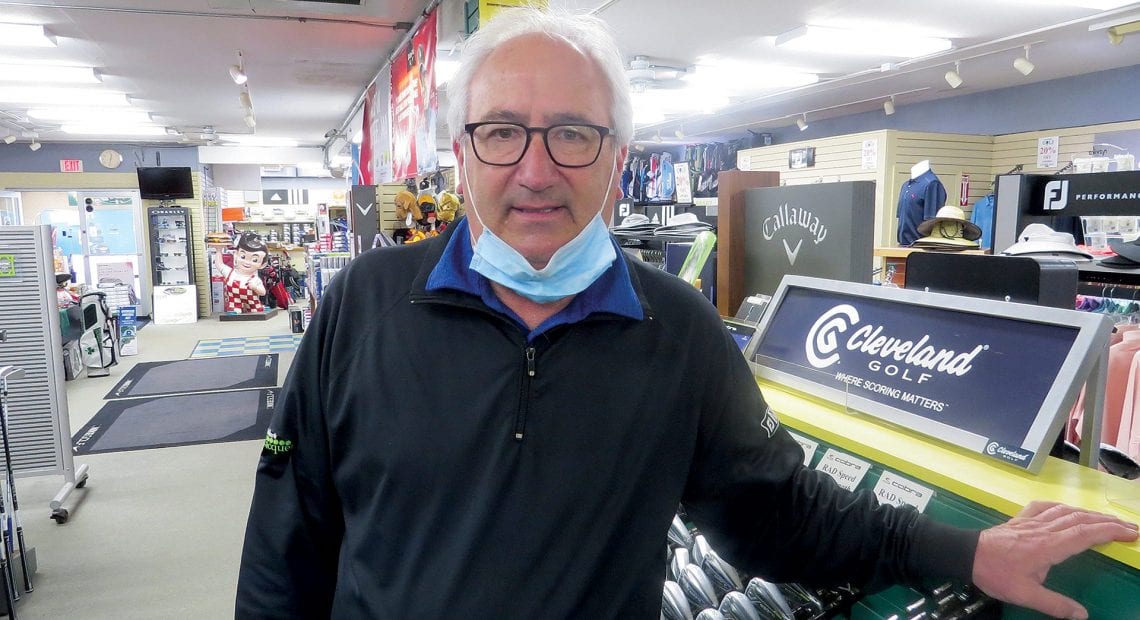Bridging the Digital Divide
 Aneesh Raman says business owners think Facebook, with its 2.2 billion users worldwide, is a valuable tool — even if they don’t always know how best to use it.
Aneesh Raman says business owners think Facebook, with its 2.2 billion users worldwide, is a valuable tool — even if they don’t always know how best to use it.
According to a 2017 survey, said Raman, who manages Facebook’s global economic-impact programs, more than 60% of small businesses in Massachusetts said Facebook is essential to their business, and 76% said the social-media platform helps them find customers in other cities, states, and countries.
“That’s encouraging data, but as you talk to them, you see a need for more training,” Raman told BusinessWest. “That’s why we’re coming to 30 cities to provide training for small businesses across a range of subjects. No matter what their skill level is — whether businesses are coming online for the first time or are online already — we can help them grow their business.”
Earlier this year, Facebook announced that Springfield had been chosen as one of 30 markets where the company will host its Community Boost program, created to help small businesses, entrepreneurs, and job seekers grow their business and develop new digital skills. Facebook will be in Springfield on Sept. 10-11, presenting workshops on a host of topics yet to be determined.
“Our mission at Facebook is building strong communities, and we believe at the core of strong communities are thriving small businesses,” said Raman, who is also a former journalist who worked as an international correspondent for CNN, as well as a former presidential speechwriter. “Small businesses are the engine of local economies. For years, we have worked with them, trained them online and offline, and helped them grow their business and help them hire more employees.”
Since 2011, he noted, Facebook has invested more than $1 billion to support small businesses. Community Boost is simply a more visible and direct method of doing so, and will focus on small-business training and digital acumen in general, rather than simply promoting Facebook, Raman said.
“Small businesses are the engine of local economies. For years, we have worked with them, trained them online and offline, and helped them grow their business and help them hire more employees.”
During its visits to 30 cities — including Houston, St. Louis, Minneapolis, San Diego, Pittsburgh, and many other metro areas much larger than Springfield — Facebook representatives will take a three-pronged approach to economic development, working with local organizations to provide digital skills and training for people in need of work, advising entrepreneurs how to get started, and helping existing businesses and nonprofits get the most out of the internet.
A broad survey conducted by Morning Consult and co-sponsored by the U.S. Chamber of Commerce and Facebook suggests that small businesses’ use of social media is creating new opportunities. For instance, in Massachusetts, 62% of surveyed businesses said Facebook is essential for their business; 76% said Facebook allows them to find customers in other cities, states, and countries; and 69% said they believe an individual’s digital and social-media skills are important when hiring.
A lot of people use Facebook for business reasons, but never any kind of training how to do it. They’re on their own,” said Paul Robbins, president of Paul Robbins Associets in Wilbraham and a communications consultant for Community Boost in Springfield.
“People feel like they’ve got this tool, but they don’t know how to use it, especially small businesses,” he went on. “Here in Springfield, we’ve got a very diverse community with a lot of small businesses. Even not-for-profits can take advantage of this free seminar. Anybody can come. The idea is to help people leverage it as a business tool.”
Logging On
Facebook pledged this year to train 1 million individuals and small business owners across the U.S. in digital and social-media skills by 2020. To do that, it will expand its in-person training programs, create more local partnerships, and build more e-learning resources.
The company cites projections that a skilled-labor shortage in America could create 85.2 million unfilled jobs by 2030, and says it is committed to helping close that skills gap and provide more people and business owners with the educational resources they need to advance at work, find new jobs, or run their companies.
Details on Springfield’s Community Boost event, which is free and open to small business and nonprofits, aren’t set yet; Facebook plans to announce a place, times, and course list at www.facebook.com/business/m/community-boost as September gets closer.
“The goal of the program isn’t to come and leave, but to kick off conversations,” Raman said, noting that Facebook has been talking to businesses and economic-development leaders on a specific program that best meets identified needs for small-business and digital-skills training in the Pioneer Valley.
“Small businesses and workers know they need skills. But they don’t always have help getting those skills,” he went on. “Once we know what the professional needs are, we’ll announce the registration date and courses online.”
According to the Morning Consult research, small businesses’ use of digital tools translates into new jobs and opportunities for communities across the country. And small businesses are the key driver, creating an estimated four out of every five new jobs in the U.S.
The survey revealed that 80% of U.S. small and medium-sized businesses on Facebook say the platform helps them connect to people in their local community, while one in three businesses on Facebook say they built their business on the platform, and 42% say they’ve hired more people due to growth since joining Facebook.
Businesses run by African-Americans, Latinos, veterans, and those with a disability are twice as likely to say that their business was built on Facebook, and one and a half times more likely to say they’ve hired more people since joining the platform.
Raman said small businesses have expressed a desire to learn more about using Facebook and Instagram, the photo- and video-sharing service owned by Facebook. “But we’re teaching skills that apply to any digital platform out there.”
After all, Robbins noted, “not everyone is digitally savvy. A small business may not have the digital skills people assume everyone has. Facebook is trying to demystify it to people, so they’re not afraid of it.”
Getting Social
Increasingly, businesses are embracing 21-st century modes of building their customer base. The 2017 survey by Morning Consult found that the use of digital platforms by American small businesses is ubiquitous — in fact, 84% of small businesses in the U.S. use at least one major digital platform to provide information to customers, and three out of four small businesses use digital platforms for sales.
Yet, businesses face challenges when it comes to the internet, with 57% of small businesses saying lack of familiarity with available digital tools is a challenge.
“At Facebook, we see a big opportunity to make a difference in partnership with local organizations and local officials,” Raman told BusinessWest. “We really do think there’s a skills gap, and by closing that, we can help expand economic opportunity in Springfield and across the country.”
But it’s not just employers the Community Boost program aims to reach. For job seekers, the program will provide training to help improve their digital and social-media skills. According to the research, 62% percent of U.S. small businesses using Facebook said digital or social-media skills are an important factor in their hiring decisions — even more important than where a candidate went to school.
Community Boost will also offer entrepreneurs training programs on how to use technology to turn an idea into a business, as well as ways to create a free online presence using Facebook.
And, of course, business owners will learn how to expand their digital footprint and find new customers around the corner and around the globe. Training will also include education in digital literacy and online safety.
“We also want to teach nonprofits to be part of the programming and how Facebook can help them learn the digital skills they need to increase donations,” Raman said.
Facebook strives to evolve Community Boost based on what it’s learning in its earlier stops. For example, in St. Louis, the first stop on the tour, the company learned exactly how wide the gap is between the digital skills job seekers know they need and the skills they feel they have. In fact, according to a survey there, 93% of job and skills seekers say digital skills are important when looking for job, while only 12% rate themselves highly in this area.
Managers also see gaps in the skills they need to grow their businesses, the St. Louis survey showed. For example, the majority of managers in that city said creating a mobile-friendly interface was important to growing their business, but very few saw themselves as proficient.
Springfield — the only New England stop for Community Boost — may not have the population of the major metropolitan areas on the tour, but Raman says the needs are universal, and Facebook wants a diverse cross-section of cities represented.
“Springfield has a vibrant small-business community with a diverse population,” he noted. “We think we can make a real impact here.”
Joseph Bednar can be reached at [email protected]







 Aneesh Raman says business owners think Facebook, with its 2.2 billion users worldwide, is a valuable tool — even if they don’t always know how best to use it.
Aneesh Raman says business owners think Facebook, with its 2.2 billion users worldwide, is a valuable tool — even if they don’t always know how best to use it.

